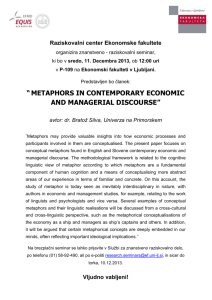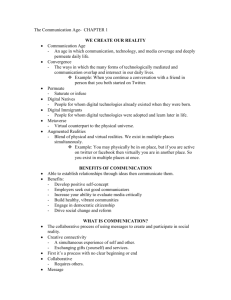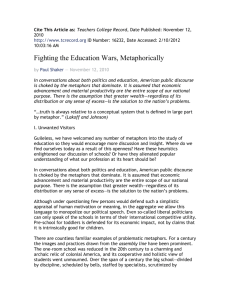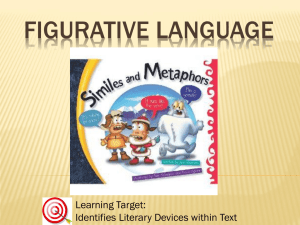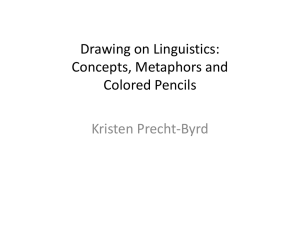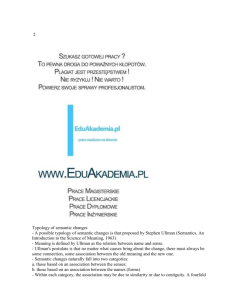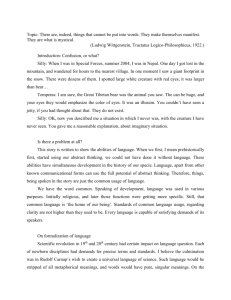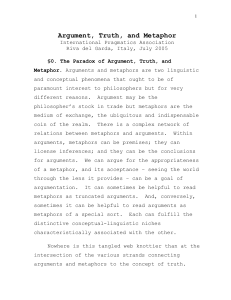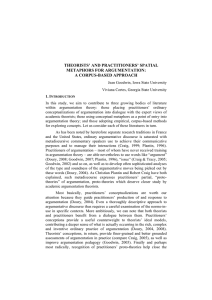Argument, Truth, and Metaphor
advertisement
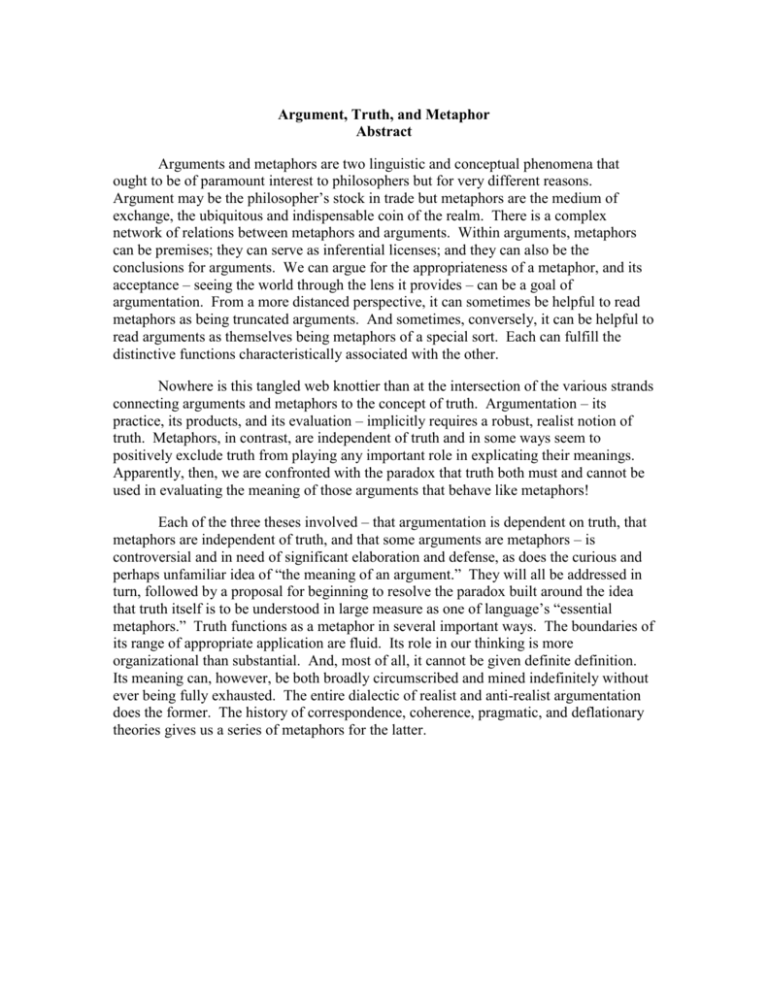
Argument, Truth, and Metaphor Abstract Arguments and metaphors are two linguistic and conceptual phenomena that ought to be of paramount interest to philosophers but for very different reasons. Argument may be the philosopher’s stock in trade but metaphors are the medium of exchange, the ubiquitous and indispensable coin of the realm. There is a complex network of relations between metaphors and arguments. Within arguments, metaphors can be premises; they can serve as inferential licenses; and they can also be the conclusions for arguments. We can argue for the appropriateness of a metaphor, and its acceptance – seeing the world through the lens it provides – can be a goal of argumentation. From a more distanced perspective, it can sometimes be helpful to read metaphors as being truncated arguments. And sometimes, conversely, it can be helpful to read arguments as themselves being metaphors of a special sort. Each can fulfill the distinctive functions characteristically associated with the other. Nowhere is this tangled web knottier than at the intersection of the various strands connecting arguments and metaphors to the concept of truth. Argumentation – its practice, its products, and its evaluation – implicitly requires a robust, realist notion of truth. Metaphors, in contrast, are independent of truth and in some ways seem to positively exclude truth from playing any important role in explicating their meanings. Apparently, then, we are confronted with the paradox that truth both must and cannot be used in evaluating the meaning of those arguments that behave like metaphors! Each of the three theses involved – that argumentation is dependent on truth, that metaphors are independent of truth, and that some arguments are metaphors – is controversial and in need of significant elaboration and defense, as does the curious and perhaps unfamiliar idea of “the meaning of an argument.” They will all be addressed in turn, followed by a proposal for beginning to resolve the paradox built around the idea that truth itself is to be understood in large measure as one of language’s “essential metaphors.” Truth functions as a metaphor in several important ways. The boundaries of its range of appropriate application are fluid. Its role in our thinking is more organizational than substantial. And, most of all, it cannot be given definite definition. Its meaning can, however, be both broadly circumscribed and mined indefinitely without ever being fully exhausted. The entire dialectic of realist and anti-realist argumentation does the former. The history of correspondence, coherence, pragmatic, and deflationary theories gives us a series of metaphors for the latter. Daniel H. Cohen Colby College Waterville, ME 04901 Phone: 207-872-3427 Email: dhcohen@colby.edu
